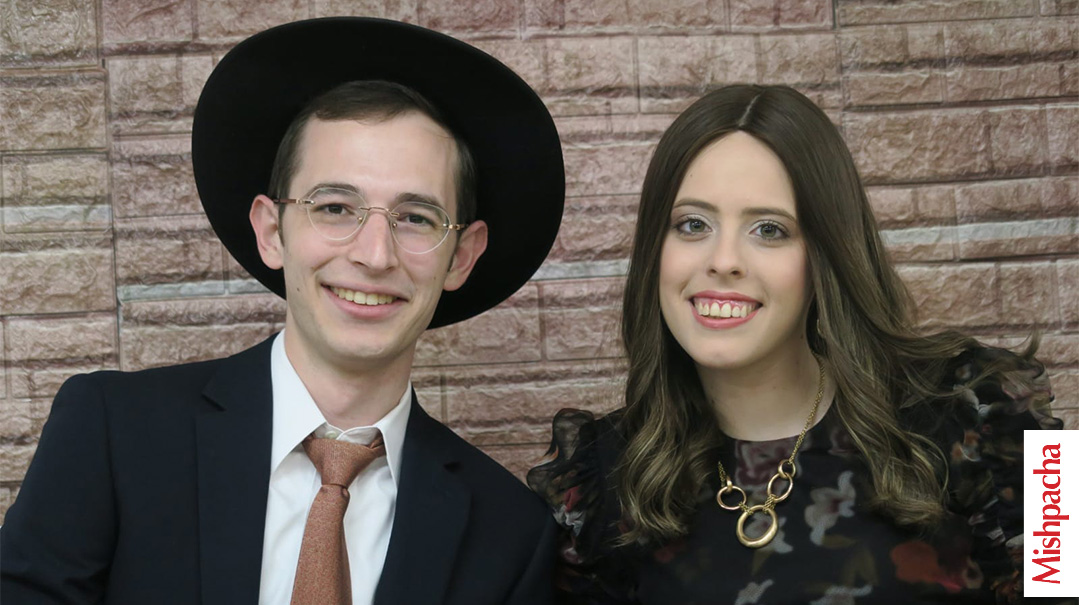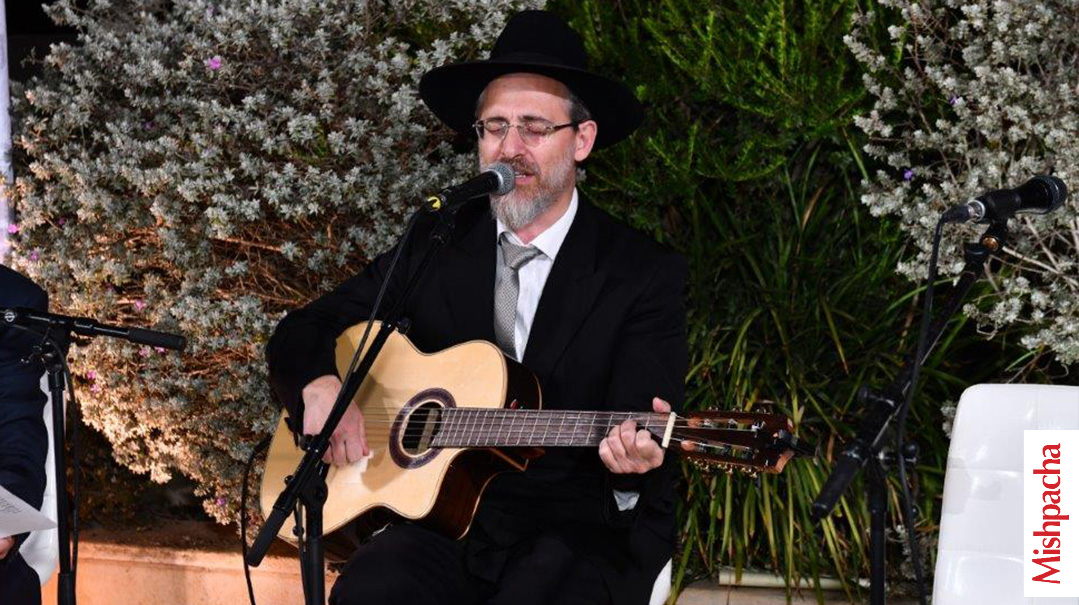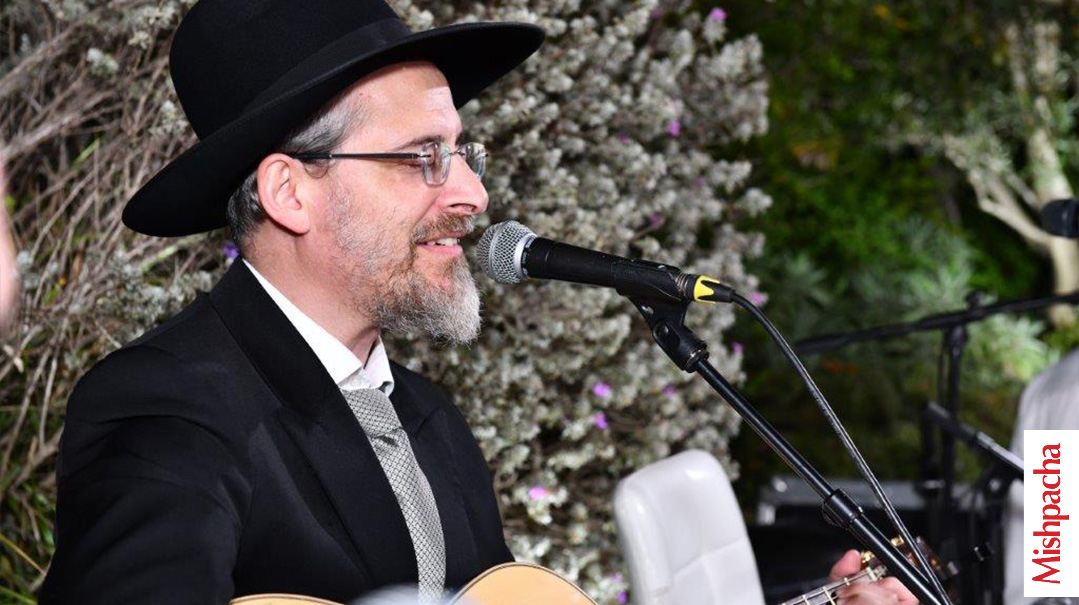“Mass Prayer Has a Special Power; It’s Never Turned Away”
| December 18, 2022One tragedy has been following another, faster than can be explained by natural causes. The only explanation is that the Creator wants us to come closer to Him

There’s no comparing tragedies. While some personal tragedies become widely known and are shared by the klal, others, no less painful or challenging, go almost unnoticed.
A few days ago I heard about a story similar to ours — a kallah who lost both her legs after a tree fell on her during her sheva brachos week. It was a grievous tragedy, but few even heard of it.
Our family’s tragedy, however, became a general one. Since Friday, we’ve been flooded with calls from people wanting to sympathize, give encouragement, and tell us about their prayers or resolutions they’ve undertaken for our kallah’s health. The tzibbur shares fully in our pain, and this has helped us greatly in bearing it.
There’s no rational explanation for why this is happening. It’s clear that only HaKadosh Baruch Hu decides whether a given incident will become widely known or not. We were told by the rabbanim and gedolei Torah who visited us over the past few days that the public needs to utilize these personal tragedies for hisorerus — awakening.
When a personal calamity occurs, the pain and distress are intended to give a wake-up call to the afflicted person to do what he’s supposed to. We don’t always know what we’re being called on to rectify, but in general, “lev yodeia maras nafsho — the heart knows its own bitterness.” Everyone knows where he could become closer to Hashem Yisbarach and do His will more wholeheartedly. And yet when the tragedy is a general one and shared by the klal, our perspective should be different.
All of Am Yisrael can see that we’re going through a difficult period. One tragedy has been following another, far faster than can be explained by natural causes. The only explanation is that the Creator wants us to come closer to Him.
“The Mishnah and Gemara make clear that in the event of a public calamity, it’s incumbent on us to daven and cry out”

The Mishnah and Gemara make clear that in the event of a public calamity, it’s incumbent on us to daven and cry out. This is where the concept of tefillas rabim (mass prayer) comes in — the most powerful force in the entire world. When troubles arise, it’s a sign to cry out to Hashem, as the Rambam writes: “But if they don’t cry out and instead say, ‘It happened in the ordinary course of human affairs,’ or, ‘It’s a coincidence,’ this is the path of arrogance, making them persist in their evil ways, and leading to one calamity after another.”
When Bnei Yisrael were enslaved in Egypt, they groaned and cried out under the hard labor and thus merited yeshuah. As the Or HaChaim Hakadosh writes: “It was not that they cried out to Hashem to save them, but they cried out in distress, as a man cries out from physical pain, and the verse tells us that their cry rose up to Hashem. Hence it is written, ‘va’taal shavasam el Elokim min ha’avodah (their outcry went up to G-d because of the work)’ — i.e., the pain of their work. ‘Vayishma Hashem es naakasam (and Hashem heard their moaning)’ — i.e., their cry of pain.” And in merit of this Bnei Yisrael were saved.
And we’ve seen this time and again throughout the history of the Jewish People. Mass prayer has a special power; it’s never turned away.
We learn from Maseches Rosh Hashanah that the special power of Aseres Yemei Teshuvah lies in the fact that they are days of closeness to G-d. “Dirshu Hashem b’himatzo, kra’uhu, biheyoso karov (Seek Hashem when He can be found, call upon Him when He is near)” — that’s the meaning of the ten days from Rosh Hashanah to Yom Kippur. The power of those days is equivalent to the power of tefillas rabim during the year. This gives us an idea of the power of tefillas rabim, which creates an eis ratzon of closeness to G-d.
Even before the terrible tragedy last Friday, the night of the 15th of Av, Am Yisrael’s condition called for tefillas rabim. And the need has only become more acute after this grievous tragedy that captured public awareness, and everyone understands that what’s needed is a special awakening and closeness to HaKadosh Baruch Hu — the situation calls for tefillas rabim.
How is this done? We can send out krios kodesh to call upon the masses to daven and cry out to Hashem, as rabbanim and gedolei Torah do now and then. In even more extreme cases, the entire tzibbur assembles for a mass prayer event. If thousands show up to such an event, it’s an exceptional achievement. But we all know how hard that is to pull off.
And under these circumstances, when it’s so hard for both the individual and the tzibbur to wake up, HaKadosh Baruch Hu wakes us up through painful and shocking tragedies — so shocking that despite being the tragedies of private individuals, they become the tragedies of the klal. In this way, the entire tzibbur is moved to gather, each in his own home, for tefillas rabim. A collective mass prayer that comes from the depths of the heart and reaches all the way to the Kisei Hakavod.
Such a mass prayer event should come before the tragedy. Since it didn’t, the tragedy did, Rachmana litzlan.
*****
For us, the days since the accident last Friday have been days of tefillas rabim. So many people in so many places across Eretz Hakodesh and the world have been davening and pleading for mercy from the Creator. And with so many people davening, it generates the power of tefillas rabim, making this an eis ratzon.
We heard from gedolei Yisrael that each person’s davening at home or at mekomos hakedoshim opens the gates of Heaven. It’s true that each person who steps up his observance and accepts resolutions for the sake of the victim’s healing does so privately, but each such private resolution accumulates with everyone else’s, creating a tremendous force that works miracles. Not only for our kallah, may she live long, but for everyone who needs a yeshuah.
There’s no question that we’re in need of this tefillas rabim. Over the past few days we’ve heard of so many men, women, children, and entire families who are davening. We have a wondrous partnership with all of Klal Yisrael, and there’s no question that this is helping medically as well.
Our kallah, may she live long, was wheeled into the hospital in mortal danger. During the first few hours, the doctors refused to commit to a prognosis. But Baruch Hashem, over the course of the week we were informed that she was out of danger.
In the next few days she is expected to be released from urgent care unit to a recovery ward. As of this time she’s still on a ventilator, but the doctors are already talking about the future, and it’s all thanks to the prayers of the klal.
“Only HaKadosh Baruch Hu, the source of consolation and the Lord of consolation, can mend such a wound”

Beyond the medical dimension, there’s no question that the mass davening affected how we handled the tragedy. During the first few hours, we didn’t know how we could ever live with it. We didn’t see one step forward, we couldn’t even think about the future. But as the hours passed, we gained strength. Despite the abyss we had fallen into, we were infused with the strength to stand up and daven to the Creator of the world, and even to talk to her. There’s no question that this is no less important a yeshuah.
The same applies to the future: Of course we’re all davening for a refuah sheleimah, but no less are we in need of rachamei Shamayim for dealing with this situation psychologically. Our entire family is in need of this, especially our kallah and her husband. We pour out our tears and prayers so that when she wakes up and she becomes aware of the new reality she’s in, she’ll have the mental fortitude to face the challenge and continue with her life.
These are fateful days, not only in the medical or even psychological sense. We sense that so many things are hanging in the balance. We don’t understand Hashem’s secrets. This is a young couple who got married only half a year ago. Our kallah was on the sidewalk with everyone else, and we truly saw the hand of G-d upending everything. The fact that it happened this way, in such an unnatural manner, gives us and our mechutanim — the wonderful Baifuss family — more strength to deal with what happened.
At the same time we feel Hashem’s closeness to us even in these trying circumstances. Imo anochi b’tzarah (I’m with him in his troubles). In my eyes, this is the biggest effect of the prayers of so many — of a tefillas rabim that amounts to “call upon Him when He is near.”
We feel that HaKadosh Baruch Hu is with us, guiding us and accompanying us at every step.
It’s written in Tanna D’bei Eliyahu: “ ‘B’chol tzarasam, lo tzar; u’malach panav hoshiam — In all their troubles, He was troubled, so an angel from before Him saved them’ (Yeshayahu 63:9). From this we learn [about Hashem’s closeness during] public troubles; from where do we know [about His closeness during] private troubles? Says the pasuk: ‘Yikra’eini v’e’eneihu, imo anochi b’tzarah — He will call upon Me and I will answer him, I am with him in distress’ (Tehillim 91:15). Then why does it say b’chol tzarasam lo tzar? Rather, says HaKadosh Baruch Hu, in every trouble that Yisrael has, I’m with them. As it says, lo tzar — don’t read lo tzar, but rather li tzar.”
None of us who are involved with this can fail to see it that way. There is much more to this incident than the personal tragedy of the Baifuss and Paley families. This is the tragedy of all Klal Yisrael. People wept night and day, crying out from a broken heart, as if it were their own family member. This davening is so powerful and mighty and it makes these regular days akin to Aseres Yemei Teshuvah.
At the same time, our hearts go out to the Glustein family, and all Am Yisrael is davening that Hashem will give them the strength to get back on their feet and continue to spread Torah and emunah to elevate the neshamos of the departed. Only HaKadosh Baruch Hu, the source of consolation and the Lord of consolation, can mend such a wound.
These are very special days, days of closeness to G-d, a time for yeshuos for individuals as well as for the public. May we merit to utilize these days for prayer, not only for our kallah, but for every Jew who’s in need of a yeshuah.
Davening works. We all saw that ourselves, and may we all merit to see nothing but good and kindness and open mercy for the rest of our days, and may the pasuk be fulfilled in us: “Then your light will burst out like the dawn and your healing will speedily sprout” (Yeshayahu 58:8).
The public is requested to continue davening for a refuah sheleimah for Batsheva bas Chaya Sarah, as well as for my son, the avreich Rav Chaim Ben Rachel, that HaKadosh Baruch Hu may give him the fortitude to continue fighting, and may they merit to raise generations of tzaddikim and live to a ripe old age.
Oops! We could not locate your form.

